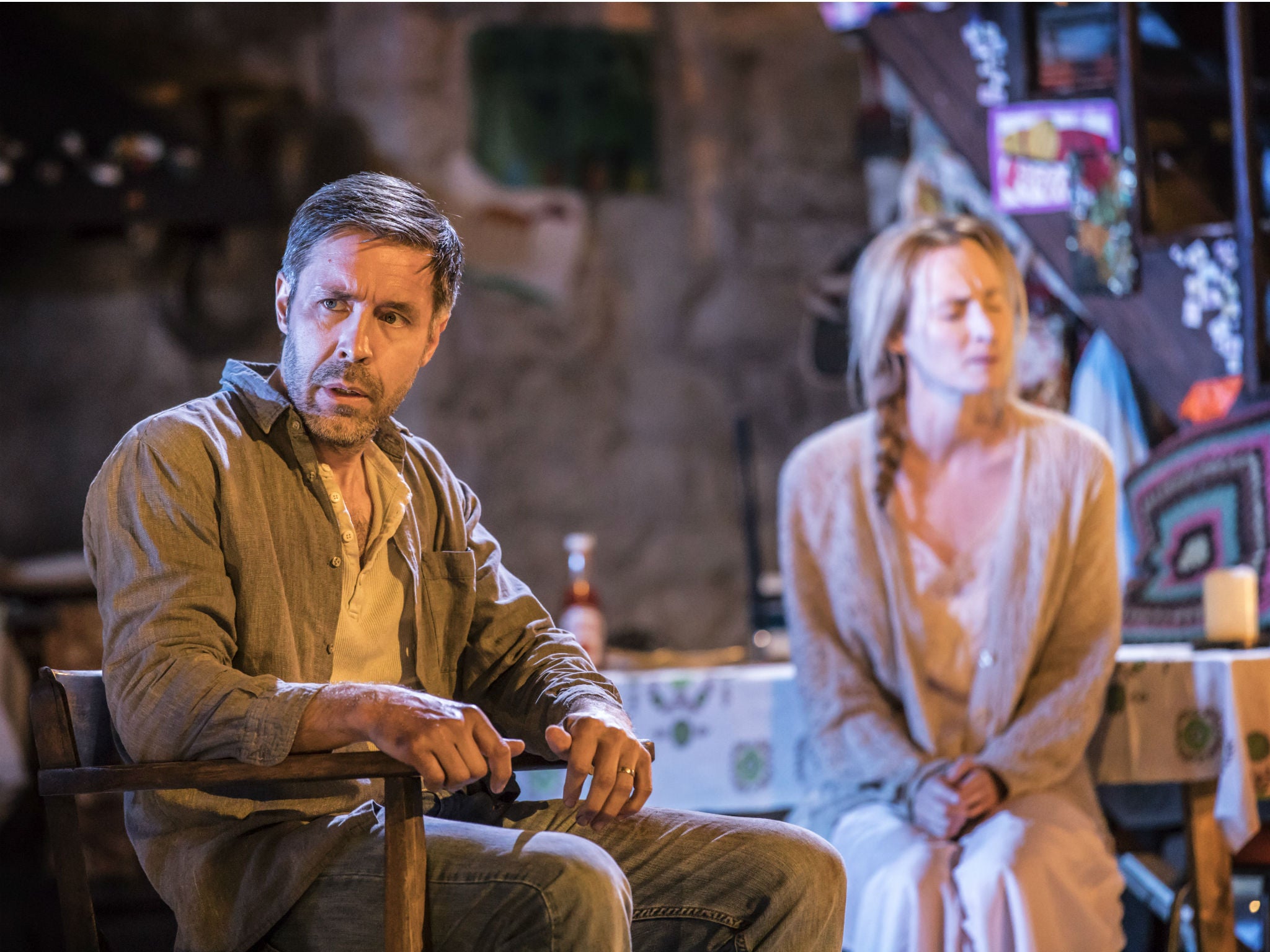The Ferryman, Royal Court, London, review: It sold out in one day. All the fuss was largely justified
Jez Butterworth’s new work ‘The Ferryman’, directed by Sam Mendes, is the fastest-selling play in Royal Court history

Jez Butterworth's mainstage follow-up to his 2009 smash-hit play Jerusalem set a new box-office record when tickets for this Sloane Square run sold out in one day last November. A West End transfer (to the Gielgud Theatre) was already in the bag long before the piece went into previews. Now we can see that all the fuss was largely justified.
Running at three hours 20 minutes, this is a richly absorbing and emotionally abundant play, directed with detailed humane mastery by Sam Mendes. He and Butterworth have worked together before on the scripts for Skyfall and Spectre, the director's two Bond films, but this is their first theatrical collaboration.
The Ferryman returns to the scale of Jerusalem, after the dramatist's lyrical, elusive chamber-piece The River in 2012. Jerusalem was a sceptical celebration of the ancient rural rituals in this green and pleasant land. The new play with a cast of 21 – not including the goose, rabbit or baby – is set in County Armagh, in 1981, at the height of the Troubles.
In the Maze Prison, 10 men are dying on hunger strike, including Bobby Sands. Family patriarch, Quinn Carney (superbly played by Paddy Considine, here making his stage debut) has long since forsworn activism with the IRA in favour of life as a farmer with his wife and eight children. From the time his brother Seamus went missing 10 years previously, his sister-in-law Caitlin (Laura Donnelly) and her son have lived as a full part of the household.
This year's harvest preparations – the hard day's work on the land followed by a traditional night of feasting – are going OK, give or take the specially fattened celebratory goose escaping from its pen, and the harvest kite being destroyed in a fit of adolescent temper. The production keeps warm, expert control of the mercurial moods and temperamental traffic of the vast family, who range from an adorable babe-in-arms to waspish, militantly Republican aunt Pat (Dearbhla Molloy) – who has never got over the death of their older brother in the Easter Rising of 1916 – and Aunt Maggie Far Away (Brid Brennan) whose garrulous patches of roguish lucidity make up to fault for the intervals when she's tuned out.
But then the priest arrives with the news that the audience has known since the first scene, set in Derry. The missing man's body has surfaced in one of the bogs just across the border. It's perfectly preserved – hands and feet bound, with a bullet hole visible in the back of the head. This proof that the past cannot be buried has profound consequences in which the political and personal get painfully twisted. It raises questions about the continued presence in the house of Laura Donnelly's extraordinarily moving Caitlin who has developed a suppressed mutual passion for her brother-in-law over the years and a talent for homemaking that has atrophied in his invalid wife.
There are disquieting visits from the remorselessly rigid Muldoon (Stuart Graham) and his IRA henchmen, who don't want the publicity advantage they have gained because of the hunger strikes squandered now and so demand a complete public exoneration for the death of Seamus if they are to leave the family alone.
Some very well written scenes of late-night teenage boozing explore the tensions between peaceable rural behaviour of the Carney lads and the harder ways of their visiting Corcoran cousins – especially Tom Glynn-Carney's Shane who is at once electric and pathetic as he delivers his account of being Catholic in Derry and the impact of Sands's funeral and let loose with his dangerously indiscreet boasts about working for Mr Muldoon.
John Hodgkinson is funny and very touching as Tom Kettle, the slow-witted gentle giant who was first taken in by the family as a 12-year-old English destitute kid inexplicably left to his own devices. I could work out too clearly, though, what his place was going to be in the pile-up of tragedies that are precipitated in rather a rush at the end.
With a light touch, Butterworth gets due metaphoric mileage, however, out of Virgil's Charon, the ferryman of the title, who is forbidden to give passage to only two types of soul in the Underworld: those whose bones are unburied and those who lie to the innocent. The piece is not as original as Jerusalem, but it has the feel of unearthed, instant classic.
Join our commenting forum
Join thought-provoking conversations, follow other Independent readers and see their replies
Comments
Bookmark popover
Removed from bookmarks